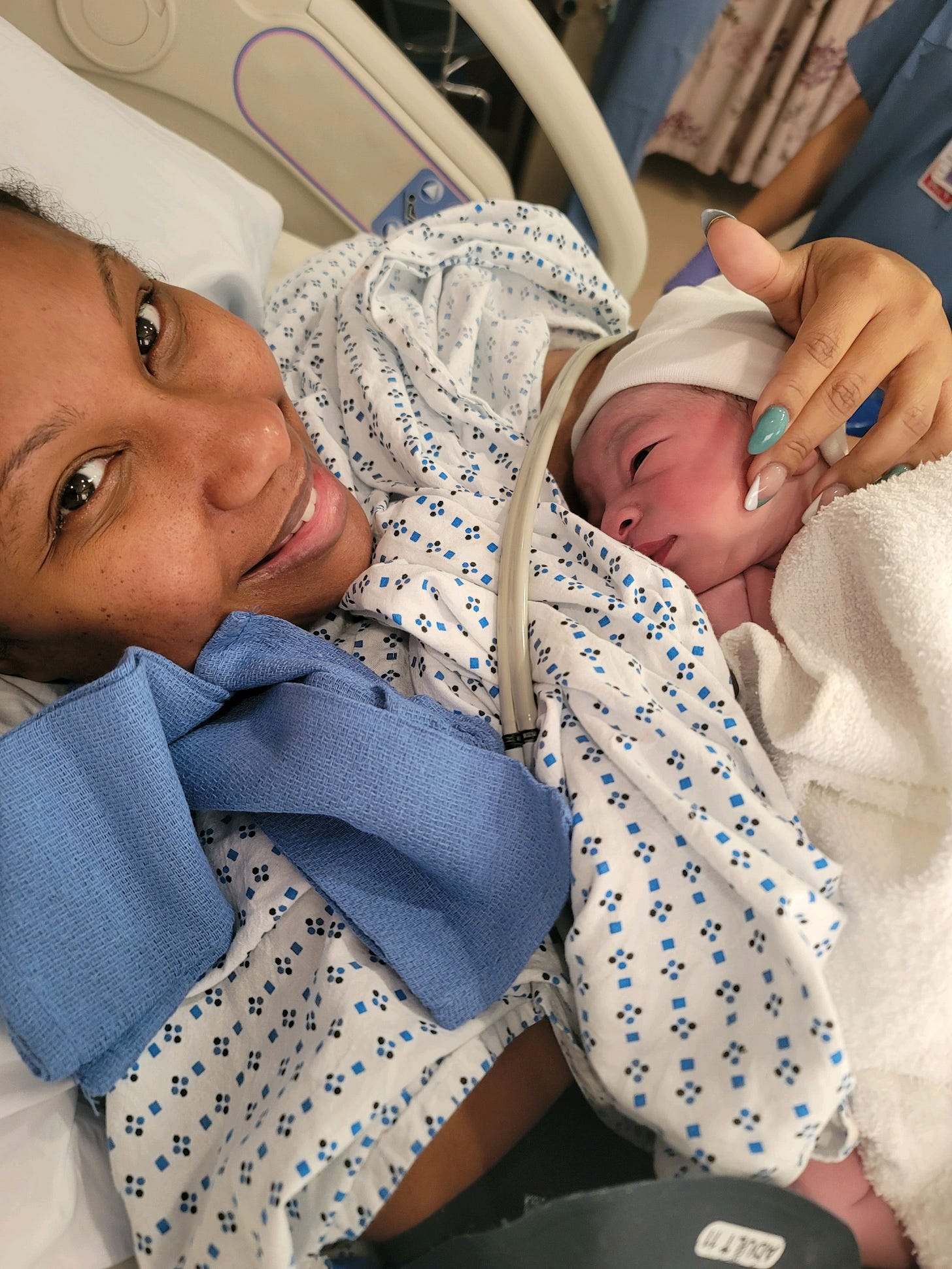IVF, Stigma & Strength: Shiraine & Barry's Journey to Lejend
In honor of IVF Awareness Month, we’re sharing Shiraine and Barry’s story—a powerful reflection on love, loss, stigma and speaking out.
In honor of June being IVF Awareness Month, we’re turning our focus to the often-overlooked truths of what it means to build a family through fertility treatment. For so many, IVF isn’t just a medical process—it’s an emotional, physical and deeply personal journey, often walked in silence. This month offers a moment to speak that silence out loud. To hold space for those navigating the ache of waiting, the weight of decisions, and the complexity of hope.
At Miscarriage Movement, we know that fertility journeys—like grief journeys—rarely follow a straight line. IVF Awareness Month is a chance to expand the conversation beyond statistics and protocols and into real stories. Stories like Shiraine and Barry’s, which unfold at the intersection of love, loss, courage and community.
This couple’s path to parenthood began with heartbreak, grew through resilience and blossomed into joy with the birth of their son, Lejend. Their story wasn’t linear or simple—it was deeply emotional, complex and at times, isolating. But it was also filled with unwavering love, profound bravery and the kind of vulnerability that inspires others to speak up and seek support.
Shiraine and Barry got married in 2019 and knew right away they wanted to start a family. But like many couples who encounter fertility challenges, they were met with roadblocks early on. Though Shiraine had long harbored an inner worry that conceiving might not come easily for her, it wasn’t until they began trying without success that she sought help. Her search led her to Dr. Cynthia Murdock, a reproductive endocrinologist at Illume Fertility, who diagnosed her with damaged fallopian tubes—a condition that would prevent natural conception.
For many, this news might have felt like a dead end. For Shiraine, it was a mix of relief and grief: relief to finally understand why things hadn’t worked, and grief over the reality that her body couldn’t do what she believed it was designed for.
"I went through a mix of emotions; relief at finally getting an answer, worry at the idea of possibly never having a child, and insecurity—knowing that my body wasn’t able to do one of the things it was built for."
Under Dr. Murdock’s guidance, the couple pursued in vitro fertilization (IVF)—a process often misunderstood and under-discussed, especially in marginalized communities. The path wasn’t without its challenges. Hormonal fluctuations, frequent testing and the emotional toll of managing expectations added layers of complexity to an already intense process. And because this was during the height of the COVID-19 pandemic, Barry wasn’t allowed at every appointment, making moments of vulnerability even harder to navigate.
Still, they remained a team. Barry was there whenever possible, offering emotional support and presence in all the ways he could. "He was patient," Shiraine recalls. "I needed more comforting than he did."
Against the odds, their first round of IVF was successful. The joy of a positive pregnancy test was met with waves of gratitude, disbelief and lingering fear. "I always had a fear of miscarriage," she shares. "It was hard to let that fear go."
Despite the excitement, Shiraine and Barry initially kept their IVF story private. In the Black community especially, infertility and fertility treatments like IVF are still often considered taboo. When they shared the news of their pregnancy with their mothers, the reaction was one of joy—but also caution. Both mothers urged them not to share the fact that they had conceived through IVF publicly, especially not on social media. "They saw it as something that would be embarrassing," Shiraine explains.
But rather than shy away, Shiraine chose to speak out. She shared her experience online, using her Instagram platform (@purpleraine) to open up about what it was like to navigate infertility, IVF and pregnancy.
The response was overwhelming. Women, particularly Black women, reached out with words of gratitude. They thanked her for saying the thing so many are too afraid to say. They told her they felt seen.
Even her mother came around—later telling her how proud she was of her daughter’s bravery.
Shiraine’s courage didn’t just change her own narrative; it helped others reconsider theirs. "It means the world to me to know that my bravery has encouraged others to be brave as well."
When asked what she would say to other Black women or couples who are struggling but hesitant to seek help, her message is simple but powerful: "Take that leap and just try it. The last thing anyone wants is to wonder 'what if.' It’s better to have tried than not to have tried at all."
Her story also sheds light on why the gap in fertility care persists. Shiraine points to stigma, lack of education, limited access to clinics and financial barriers—particularly the lack of insurance coverage—as major reasons many Black women don’t pursue fertility treatment. "Some Black women are simply not familiar with IVF as an option for building a family," she says. Her hope is that by speaking out, that can change.
Dr. Murdock agrees. In our conversation, she emphasized how important it is to dispel myths about fertility care. One major misconception, she says, is that IVF is quick and easy. In reality, it often takes months and comes with a steep emotional and financial cost. But she also notes that in states like Connecticut and New York, insurance mandates are helping improve access.
She breaks down the IVF process simply: "We stimulate the ovaries to produce multiple eggs with hormone injections, then retrieve those eggs through a short surgical procedure. The eggs are fertilized in a lab and grown into embryos. One is then transferred into the uterus, either fresh or frozen. The entire process—from injections to transfer—can take several weeks."
Dr. Murdock stresses that infertility isn’t just a “woman’s issue.” In heterosexual couples, 40 percent of infertility is male factor, 40 percent is female factor, and 20 percent is a combination of both. "If you’ve been trying for a year without success—or six months if you’re over 35—it’s time to see a specialist," she advises. "And if you’re in a same-sex relationship or planning to be a single parent, don’t wait to explore your options."
As for the emotional toll, Dr. Murdock is frank: "The stress of fertility treatment is on par with cancer treatment. It’s incredibly hard." She recommends therapy, support groups, yoga, acupuncture, good nutrition, and above all, community.
That’s what Miscarriage Dialogues is all about. Creating space for community, conversation and connection. So stories like Shiraine and Barry’s don’t live in the shadows. So more people can say, “Me too.”
Shiraine and Barry welcomed their son, Lejend, into the world on December 18, 2022. And every day since, they’ve shown him—and the world—what love and resilience look like.
Let us carry their story forward. Not just to honor their path, but to encourage others on theirs.







